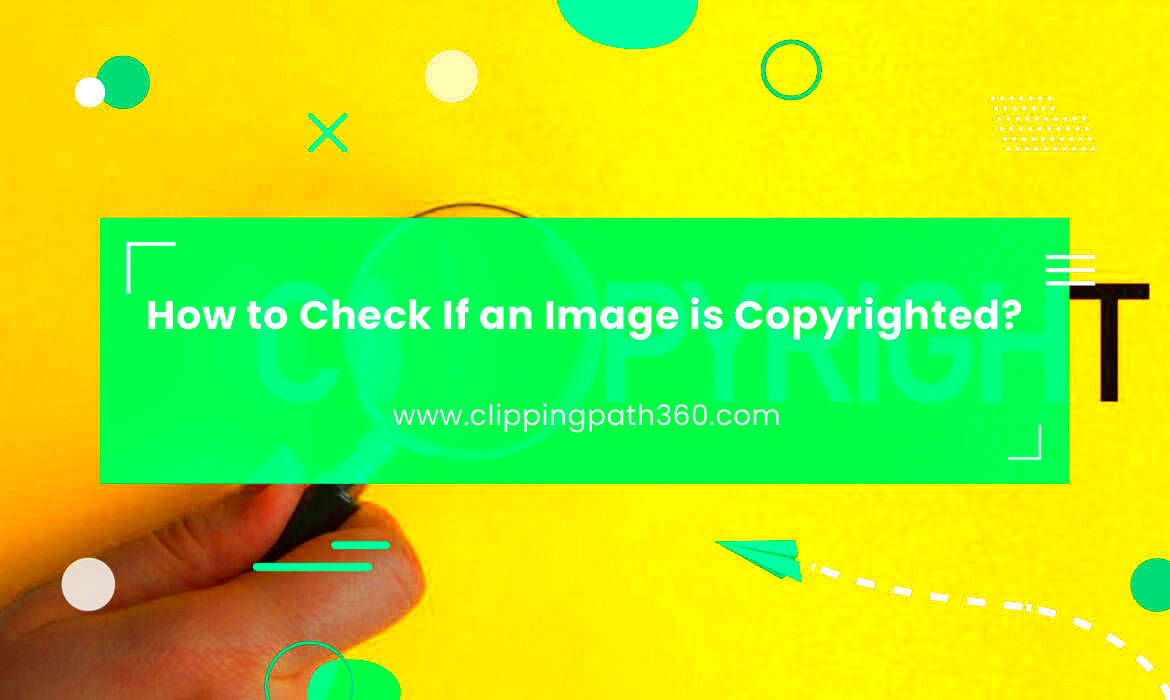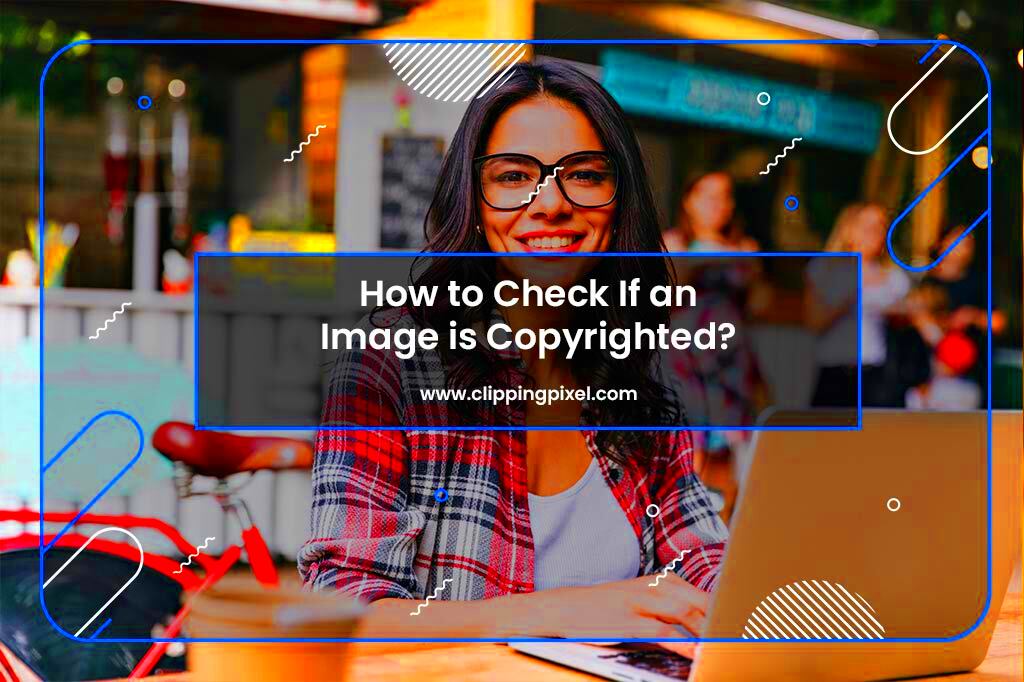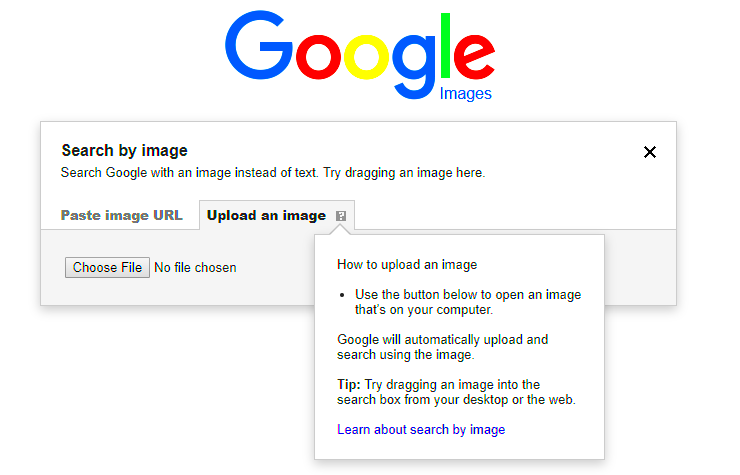Copyright is a legal concept that gives creators exclusive rights to their works. This means that if you create something, like an image, you have the right to control how it's used. Understanding copyright is crucial, especially in the digital age where images are shared widely.
Here are some key points about copyright:
- Originality: Copyright protects original works that are fixed in a tangible medium.
- Automatic Protection: Copyright exists automatically when an image is created and does not require registration.
- Duration: Copyright lasts for the life of the creator plus an additional number of years, depending on the jurisdiction.
- Rights Granted: The creator has the exclusive right to reproduce, distribute, display, and perform the work.
Understanding these basics helps you navigate the world of images more confidently.
Identifying Copyrighted Images Online

Finding out if an image is copyrighted can be challenging. However, there are signs and methods that can help. Here’s what to look for:
- Watermarks: Many photographers place watermarks on their images to indicate ownership.
- Copyright Notices: Look for copyright symbols or phrases like “All Rights Reserved.”
- Image Metadata: Right-click on the image and select “Properties” to see if copyright information is included.
If you’re unsure, always err on the side of caution and seek permission before using any image you find online.
Also Read This: How to Get a Publish Link from Behance and Share Your Work Online
Checking Image Licenses on Stock Photo Websites

Stock photo websites often provide clear licensing information, making it easier to understand what you can and cannot do with an image. Here’s how to check:
- Read the License Agreement: Each image will have a license agreement explaining usage rights. Look for terms like “royalty-free” or “rights-managed.”
- Use Filtering Options: Many stock sites allow you to filter images by license type, helping you find images you can use legally.
- Contact Customer Support: If you have questions, reach out to the website’s support team for clarification.
Always ensure that you are fully aware of the licensing terms before downloading and using any stock image. This will help you avoid potential copyright issues down the line.
Also Read This: Stretching an Image Without Distortion
Using Reverse Image Search Tools
Reverse image search tools are fantastic resources for anyone looking to find out more about an image. Whether you want to check the source of a photo or see if it’s been used elsewhere, these tools can help you track it down. They work by allowing you to upload an image or provide a URL, and then they search the web for instances of that image.
Here are some popular reverse image search tools you can try:
- Google Images: Just click on the camera icon in the search bar to upload your image or paste its URL.
- Tineye: This dedicated reverse image search engine is designed specifically for finding image sources and tracking usage.
- Bing Visual Search: Similar to Google, Bing also offers a visual search option where you can upload images.
Using these tools can provide valuable information about the image's copyright status, as you may find usage rights or ownership details linked to the original source. Always double-check the results to ensure that you’re using images correctly.
Also Read This: How to Create Stunning Dough Flowers Step by Step
Recognizing Public Domain and Creative Commons Images
Public domain and Creative Commons images can be great alternatives if you're looking for images to use without copyright concerns. Understanding these categories can save you from legal headaches while still allowing you to find great visuals.
Here’s a breakdown:
- Public Domain: Images in the public domain are free for anyone to use. They may be old enough that copyright has expired or have been intentionally released into the public domain by their creator.
- Creative Commons: These images are protected by copyright but can be used under certain conditions. There are different types of Creative Commons licenses, so it’s crucial to read the specific terms. For instance:
- CC BY: Allows you to use the image, but you must give appropriate credit.
- CC BY-NC: Use is allowed for non-commercial purposes only.
When using these images, always verify the license details to ensure compliance with any requirements. This way, you can freely use images without stepping into copyright trouble.
Also Read This: Playlist Popularity: Boosting Your Spotify Playlist with More Likes
Common Myths About Image Copyright
There are plenty of misconceptions about image copyright that can lead to confusion. Let's debunk some of the most common myths so you can navigate this topic more confidently.
- Myth 1: “If I find an image online, I can use it.”
This is false. Just because an image is online does not mean it’s free to use. Always check copyright status. - Myth 2: “All stock images are free.”
Not all stock images are free. Many require payment or specific licensing agreements. - Myth 3: “Changing an image makes it my own.”
Modifying an image does not automatically give you copyright ownership. The original creator retains their rights. - Myth 4: “Images without a copyright notice are free to use.”
Copyright exists even without a visible notice. Always check for licenses.
By understanding these myths, you can better protect yourself and your work. Always do your homework before using any images to stay on the right side of copyright law.
Also Read This: Steps to Remove Color from an Image for a Clean Look
Steps to Take if You Use a Copyrighted Image
Using a copyrighted image without permission can lead to legal trouble, but don’t panic if you find yourself in this situation. There are steps you can take to address it. The important thing is to act quickly and responsibly.
Here’s what to do if you realize you’ve used a copyrighted image:
- Remove the Image: The first step is to take down the image from your website or platform immediately. This shows that you are taking the matter seriously.
- Contact the Copyright Owner: If you can identify the copyright owner, reach out to them. Apologize for the unintentional use and discuss how to rectify the situation. They may be willing to grant you a license.
- Consider Licensing: If the owner is open to it, discuss the possibility of licensing the image legally. This way, you can use the image with proper permission.
- Review Your Content: Go through your other content to ensure there are no additional copyrighted images being used without permission.
- Educate Yourself: Use this experience as a learning opportunity. Familiarize yourself with copyright laws and image licenses to avoid future issues.
Taking these steps shows responsibility and can help prevent more serious repercussions.
Also Read This: How to Get an Image for Your ESPN Fantasy Team Profile
FAQ about Image Copyright
Questions about image copyright often arise, especially for those new to using images online. Here are some frequently asked questions that can help clarify things for you.
| Question | Answer |
|---|---|
| What is copyright? | Copyright is a legal right that gives the creator of original work exclusive rights to its use and distribution. |
| Can I use images from Google? | Not without checking the copyright status. Just because an image appears in a search result doesn’t mean it’s free to use. |
| What does “royalty-free” mean? | Royalty-free images can be used without paying royalties each time they are used, but they still require a license. |
| How do I know if an image is in the public domain? | Images are generally in the public domain if their copyright has expired or if they were created by a government entity. |
If you have more questions, don’t hesitate to do further research or consult legal advice regarding copyright issues.
Conclusion on Copyrighted Images
Understanding image copyright is essential in today’s digital world. Whether you’re a content creator, a business owner, or just someone who enjoys sharing visuals online, knowing the rules surrounding copyright can save you from potential legal issues. Remember, respecting copyright not only protects you but also honors the hard work of creators.
To sum up:
- Always verify the copyright status of an image before use.
- Utilize public domain and Creative Commons resources for free images.
- Be aware of the licenses attached to stock images.
- If you mistakenly use a copyrighted image, act swiftly to rectify the situation.
By following these guidelines, you can enjoy using images while respecting the rights of their creators. Happy image hunting!

 admin
admin








